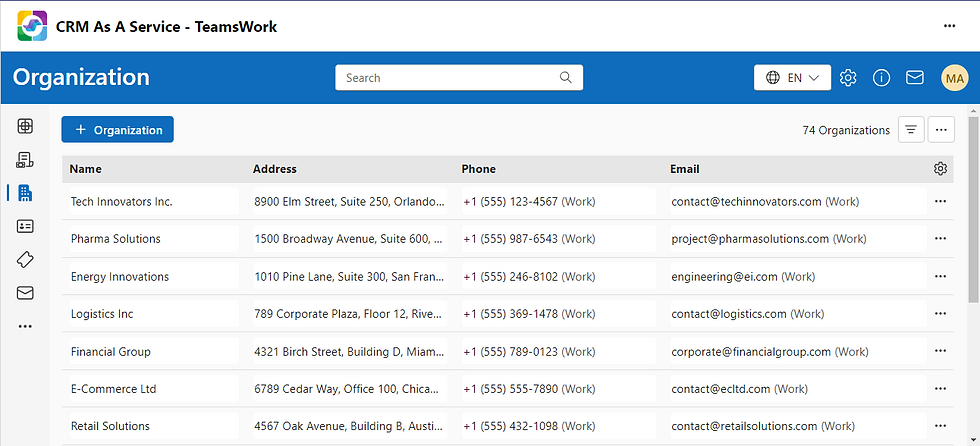What is Lead, Opportunity, Contact, and Organization: Clearing Up the Confusion
- Marc (TeamsWork)

- Sep 20, 2024
- 3 min read
Updated: Jun 17, 2025
When discussing CRM systems, you’ll often hear terms like "Lead," "Opportunity," "Contact," and "Organization." While these are all related to sales management, they refer to different stages and aspects of the customer journey.
Let’s clarify their meanings

Lead
As mentioned, a lead is a prospective customer who has shown interest in your product or service. This is the starting point of a potential sales journey, where your team determines whether the lead is worth pursuing further. Learn how to manage leads.

Opportunity
Once a lead is qualified—meaning they have been assessed as a potential fit for your offering—they become an opportunity. This is where your sales team actively works on closing the deal, moving the opportunity through the various stages of the sales pipeline. Learn how to manage opportunities.

Contact
A contact refers to an individual within a lead or opportunity. This is the person you engage with directly, whether it’s through calls, emails, or meetings. A contact may represent a lead, an existing customer, or a key stakeholder in an organization. Learn how to manage contact.

Organization
Organizations are the companies or entities that your leads, contacts, and opportunities belong to. CRM As A Service allows you to track all key information about the organizations you’re engaging with, including their size, industry, and interactions with your sales team.

Use Case Scenario
To better understand the distinctions between a Lead, Opportunity, Contact, and Organization in CRM systems, let's walk through a real-world scenario. Imagine you’re a software company selling project management tools.
Lead: You attend a trade show, and a representative from "Tech Innovators Inc." expresses interest in your software. They provide their contact information, making them a lead. This is the first stage where you’ve identified interest, but you’re still determining if it’s worth pursuing.

Opportunity: After a follow-up meeting with the lead, you learn that "Tech Innovators Inc." is actively seeking a new project management tool for their team. They are looking to make a purchase within the next three months. At this point, the lead is qualified, and you create an opportunity in your CRM system to track this potential deal as it moves through your sales pipeline.

Contact: The individual you met at the trade show is Sarah, the IT Manager at "Tech Innovators Inc." She becomes a contact in your CRM system. Over the course of the sales process, you will communicate directly with her about the product and purchasing decisions.
Organization: "Tech Innovators Inc." itself is the organization. This is the company Sarah works for, and your CRM As A Service app allows you to track all relevant details about this organization—its size, industry, needs, and any prior interactions with your company.
Leads, Opportunities, Contacts, and Organizations are essential terms in CRM that can significantly enhance your sales processes and improve customer engagement. CRM As A Service offers a powerful platform that allows you to efficiently manage these elements, ensuring that your team can track interactions and optimize sales strategies seamlessly.
Experience the benefits for yourself—sign up for CRM As A Service today and start your free trial!
TeamsWork is a Microsoft Partner Network member, and their expertise lies in developing Productivity Apps that harness the power of the Microsoft Teams platform and its dynamic ecosystem. Their SaaS products, including CRM As A Service, Ticketing As A Service and Checklist As A Service, are highly acclaimed by users. Users love the user-friendly interface, seamless integration with Microsoft Teams, and affordable pricing plans. They take pride in developing innovative software solutions that enhance company productivity while being affordable for any budget.



Comments